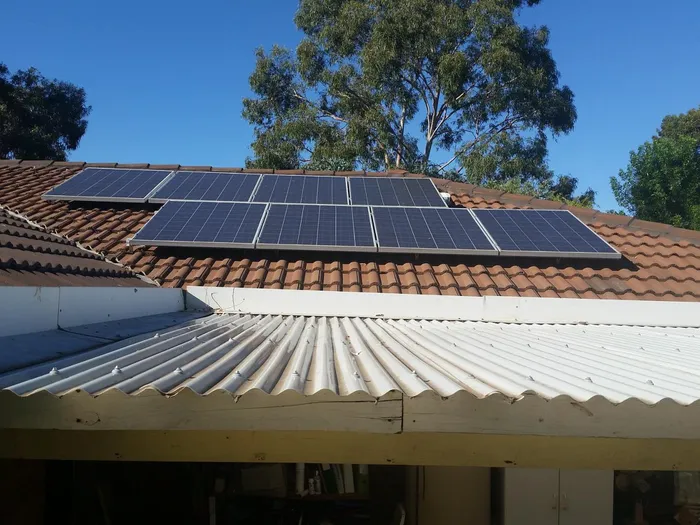
Organisation Undoing Tax Abuse (Outa) recommended that homeowners and businesses should not register their solar systems until Eskom clarifies several outstanding issues.
Image: File
With solar system registration still unclear, the Organisation Undoing Tax Abuse (Outa) recommended that homeowners and businesses should not register until Eskom clarifies several outstanding issues.
This follows a meeting between Outa and Eskom Distribution management on Friday, August 8, 2025. The two parties discussed compliance and registration requirements for low-voltage solar PV and battery energy storage (BES) systems installed in homes and businesses throughout South Africa.
Outa said it was clear to both parties that Eskom Distribution is still working on a number of matters that will impact the conditions and needs pertaining to the utility’s compliance and registration requirements for low-voltage small-scale embedded (SSEG) systems.
The organisation said it has raised concerns over restrictive and compliance requirements affecting three main groups - prepaid electricity customers, postpaid electricity customers, and electricity customers on Eskom's Homeflex time-of-use tariff that have installed or intend to install low-voltage solar PV and/or BES systems and do not export energy into the Eskom network.
Eskom, through its media desk team, said it values its recent engagement with Outa and remains committed to empowering customer choice, supporting South Africa’s energy transition, and ensuring a safe, reliable, and cost-effective electricity network.
The utility also reaffirmed its support of SSEG to help customers lower electricity costs and increase energy independence for both households and businesses.
Many South Africans are turning to solar power to mitigate the effects of load shedding. This widespread adoption is driven by the frequent and prolonged power outages experienced across the country, prompting households and businesses to seek more reliable and cost-effective energy solutions.
However, customers have been encouraged to register their solar systems with their municipalities or Eskom (depending on who supplies their electricity) by March 2026 or otherwise face penalties and a fine of about R6,052.
This involves submitting required documentation, including proof of ownership, system specifications, and a certificate of compliance (CoC). The process aims to ensure that the system adheres to safety and technical standards and that customers can potentially offset their electricity consumption with solar power.
However, Outa’s chief executive officer, Wayne Duvenage, said the organisation believes the current registration and compliance requirements for low-voltage solar PV and BES systems are irrational, unfair, and discriminatory against households and businesses that have taken action or intend to take action to reduce their energy consumption from the grid.
“Outa believes the mandatory SABS Code of Practice for Low-Voltage Electrical Installations is in the process of being amended to cover both standby and grid-tied solar PV and BES systems, which form the majority of residential systems installed.
“The Occupational Health and Safety (OHS) Act, together with the associated Electrical Installation Regulations (EIR) and the referenced mandatory standard SANS 10142-1 will, therefore, provide all the necessary technical, safety, compliance and enforcement regulations for solar PV and BES systems connected behind-the-meter on the premises of residential customers,” Duvenage said.
He said Outa believes that in such circumstances, there is no need for Eskom’s requirement to have a professional person registered with the Engineering Council of South Africa (ECSA) to sign off on residential SSEG installations, whether standby or grid-tied, as opposed to a Certificate of Compliance (CoC) issued by an electrical contractor and electrician accredited by and registered with the Department of Employment and Labour.
He added that Outa’s view is that Eskom’s current registration and compliance requirements for low-voltage solar PV and BES systems connected behind-the-meter on the premises of residential customers may be overstepping its regulatory authority, safety mandate, and enforcement authority.
However, Eskom said until the SABS finalises its standards, an ECSA-registered professional engineer or technologist, as mandated by NRS 097-2, must sign off all grid-tied SSEG systems, since qualified electricians are not yet authorised to do so.
The utility said once the SABS finalises the low voltage regulation rules for SSEGs, a clear compliance pathway will be established.
“Furthermore, customers with SSEGs can choose from Homeflex tariffs 1, 2, 3, or 4, which offer time-of-use rates. This enables them to benefit from exporting energy during high-value periods and using grid energy when it is cheaper. If these customers paid the same average rate as those without their own generation, they would pay less than the actual cost of supplying them based on their usage patterns — especially if they consume grid energy during peak times.”
Duvenage said Outa intends to engage further on these matters with Eskom Distribution, the relevant regulatory authorities, such as the Department of Employment and Labour and the National Energy Regulator of South Africa, as well as the relevant convenor of the SABS Working Group for SANS10142-1.
“Until Outa is satisfied that all the current requirements for registration of SSEG systems are rational or necessary, or indeed that registration of such systems is even required at all, Outa suggests that homeowners and businesses that have or intend to install low-voltage SSEG systems of less than 100 kW may hold off on registering their systems with Eskom, or any municipality for that matter,” Duvenage said.
manyane.manyane@inl.co.za
Related Topics: